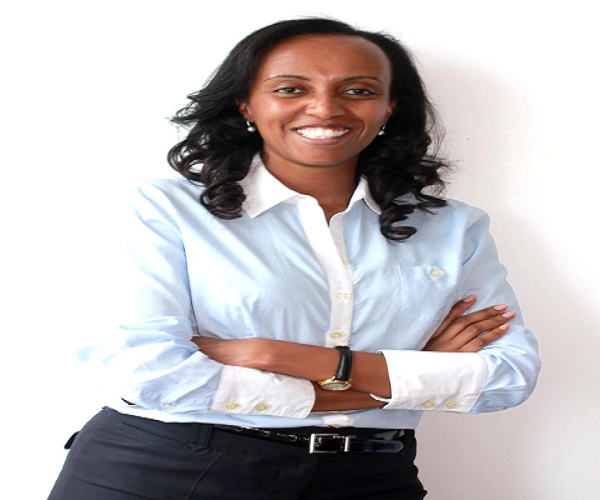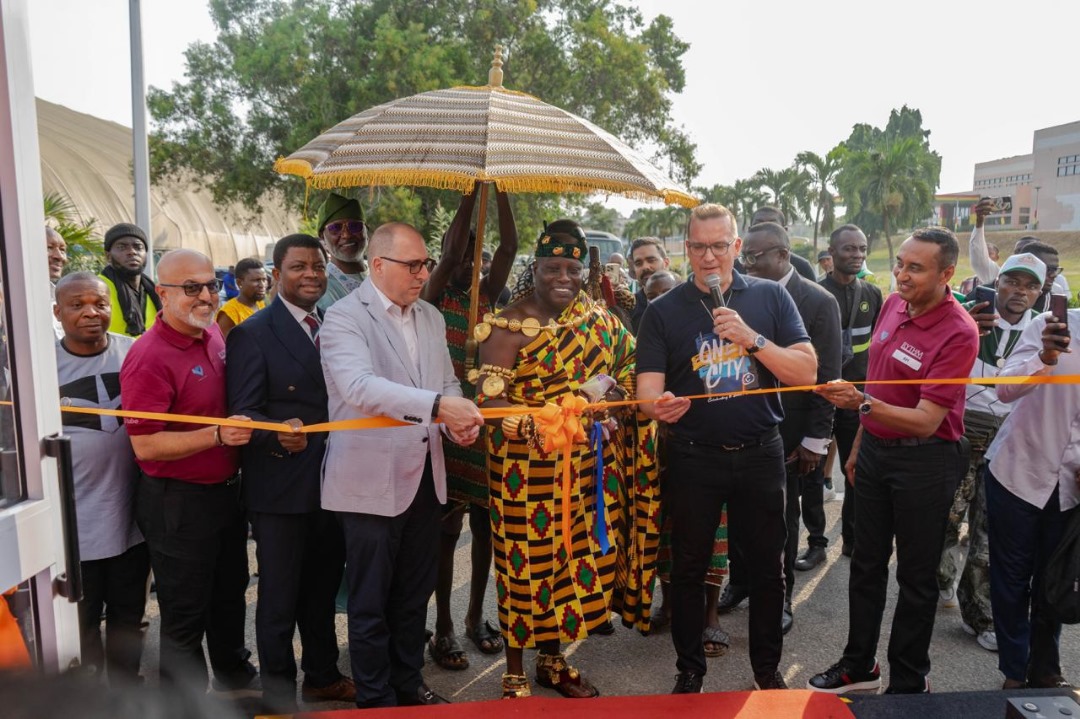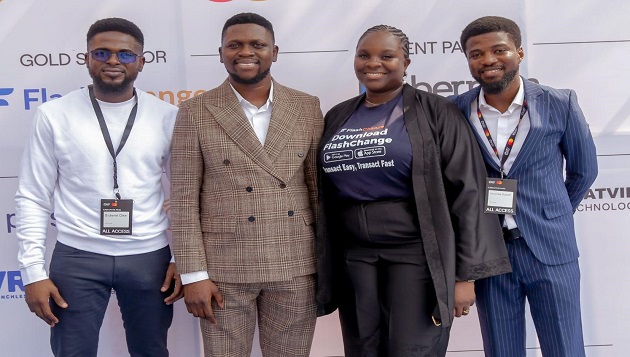General News
African Governments,are you ready for the Fourth Industrial Revolution?

By Amrote Abdella, Regional Director of Microsoft 4Afrika
At a recent conference in Johannesburg, a young college student posed a question to the Presidency of South Africa: “If we are introducing into basic education new subjects to be competitive in the Fourth Industrial Revolution, like coding, why do we have ministers of education that are over 60?”
It was an interesting glimpse into the mind of a demographic most impacted by the digital era. If you look at anydigitally transforming organisation, what sets the leaders apart is not just a clear digital strategy, but a culture and leadership poised to execute it. Employees today expect business leadersto be nimble, embracing digital tools to remain competitive and make strategic decisions with the future in mind.
Thisstudent’s questiondemonstrates that the expectation on governmentsis no different. As African countries work to become global leaders in the digital revolution, young people are looking for a tech-savvyand digitally mature governmentto boldly set the standards, andlead the way.
The benefits of a digitally skilled government
The benefits of a digitally-savvy government are many. Armed with technologies and the capabilities to use them, governments are empowered to be moreagile, efficient, data-driven, transparentand connected to citizens. With machine learning and skills in data analytics, policy makers can be more forward-thinking, regularly re-examining policies, discovering new opportunities and mitigating risks for more productive and inclusive growth.
A Deloitte digital survey also found thatpublic sector leaders who understand digital trends and technologies are three times more likely to provide appropriate support for transformation, compared to those who do not. High levels of involvement with technology typically result in greater investment, broader adoption and a greater number of successful implementations.
In a recent IFC report, Africawasnoted as having a slow and insufficient policy response to digital transformation.Respondents called for accelerated efforts in developing clear-cut digital agendas. This includes modernizing school curriculum, training teachers, expanding broadband access,promoting avibrant business climate by encouraging competition, and enforcing cybersecurity.Today, resources such as the AI Business School geared specifically towards government can be the first stop for governments looking to upskill their employees.
With more digital champions in government,imagine how much more rapidly Africa could implementthis transformation and advance its position as a leader in the Fourth Industrial Revolution.
In 2018, for example, the United Arab Emirates announced its intention to become the world’s most prepared country for artificial intelligence, leading in AI research, development and innovation. To do so, they began efforts at government level,appointingthe first dedicated Minister of AI. The effort was applauded for ensuring “a necessary focus for implementation as opposed to just talking” and ensuring solutions are based on the latest understanding of technology.
Taking the lead in digital transformation
For Africa to truly succeed – and lead – in the Fourth Industrial Revolution, innovative startups, technology companies and smart businesses need to collaborate on building an ecosystem where everyone benefits from technology. Leading this charge needs to be progressive governments with clear roadmaps that both define and enable the digital horizon.
Countries like Morocco are well on their way, through initiatives including the Maroc 2020 Digital strategy. But, as the Organization for Economic Co-operation and Development (OECD) points out, the success of this strategy depends on government capacity to prioritize, plan, manage and monitor ICT investments. Governments need to focus on attracting, retaining and upskilling qualified ICT professionals in the public sector workforce that can cope with the complexities of the new policy environment.
Undoubtedly today, the most critical area of investment by governments needs to be skills development in order to sustainably grow their emerging digital economies. The time for skilling was yesterday. The next best time is today.
General News
Government, Development Industries Report Threefold Decrease in Critical Cyber Incidents in 2024

According to the latest Kaspersky Managed Detection and Response (MDR) analyst report, government and development industries experienced a significant decrease in the number of high-severity incidents with direct human involvement in 2024, whereas the food, IT, telecom and industrial sectors demonstrated an increase.

The annual Managed Detection and Response (MDR) analyst report provides insights into detected incidents, their nature and their distribution across various industries and geographic regions.
Additionally, it emphasises the most common tactics, techniques and tools used by attackers over the previous year. The data is based on analysis of incidents detected by Kaspersky MDR.
Compared to 2023, the mass media, development and telecoms industries experienced a significant increase in the number of incidents.
However, when examining high-severity incidents – those that feature direct human involvement – the distribution reveals notable differences.
In 2024, the MDR team identified that the majority of high-severity incidents occurred in IT (23%), followed by the government (18%) and industrial sectors (18%).
The report highlights a significant decrease in high-severity incidents within the government and development sectors, while the number of such incidents in the food sector increased.
Additionally, a relatively large rise was observed in the industrial sector, alongside a slight increase in retail, IT and telecoms. Interestingly, despite the mass media sector facing a substantial increase in overall incidents, this trend did not translate into a corresponding rise in high-severity incidents.
This observation shows that many attack attempts were swiftly detected and mitigated, effectively preventing their severity from escalating beyond medium levels.
“In 2024, we revealed a shift in the landscape of cyber threats, with high-severity incidents increasingly concentrated in the food sector, underscoring the necessity for cybersecurity measures in this area.
While the overall number of incidents surged in sectors like telecom and mass media, the resilience demonstrated in swiftly detecting and neutralising potential threats highlights the importance of proactive measures.
As attackers refine their tactics, organisations must adapt by investing in robust cybersecurity solutions that combine advanced technologies with expert oversight,” comments Sergey Soldatov, Head of Security Operations Center at Kaspersky.
To strengthen your company’s protection against sophisticated attacks, deploy robust cybersecurity solutions and hire qualified practitioners to manage them or adopt managed security services such as Managed Detection and Response and Incident Response.
These security services encompass the complete incident management cycle from threat identification to continuous protection and remediation. They assist in safeguarding against evasive cyberattacks, investigating incidents and offering expert support even if a company lacks security workers.
General News
Ghana Shines as Host of QNET’s Groundbreaking V-Africa 2025 Event

Ghana took center stage as the host of QNET’s highly anticipated V-Africa 2025, a regional edition of the company’s flagship convention.

From February 20 to 23, 2025, the Accra International Conference Centre welcomed over 4000 participants from across the Sub-Saharan Africa region to experience four days of empowerment, networking, and innovation.
The convention spotlighted QNET’s exclusive product offerings, which provide immersive entrepreneurship training and contribute significantly to Ghana’s tourism and economic growth. V-Africa 2025 showcased Ghana as a hub for entrepreneurial excellence.
Trevor Kuna, Chief Marketing Officer for QNET, expressed his enthusiasm: “Hosting V-Africa 2025 in Ghana is a testament to our commitment to supporting entrepreneurs in Africa.
This event isn’t just about showcasing our brand—it’s about empowering individuals to achieve their dreams while contributing meaningfully to local economies. We look forward to welcoming media representatives to witness QNET’s transformative impact firsthand.”
Empowering Entrepreneurs, Celebrating Culture
The itinerary for V-Africa 2025 included product workshops, dynamic training sessions on business building and entrepreneurship, and an exhibition featuring QNET’s signature product brands, such as HomePure range of home care products, Amezcua’s wellness range, Swiss watch brand Bernhard H. Mayer’s new Collection, and more.
Attendees gained invaluable insights into QNET’s ethos of wellness, sustainability, and entrepreneurship, setting the stage for lasting business growth.
Biram Fall, QNET’s Regional General Manager for sub-Saharan Africa, elaborated on the event’s local significance: “V-Africa 2025 will leave a lasting legacy by empowering Ghanaian entrepreneurs and supporting Ghana’s tourism industry.
“This is more than a business convention—it’s a platform for connection, growth, and transformation.”
Driving Tourism and Economic Growth
As one of the largest events of its kind in Ghana, V-Africa 2025 attracted participants from 25 countries, providing a boost to the local hospitality, transportation, and tourism sectors.
QNET’s commitment to Ghana includes partnering with local stakeholders to ensure the event delivers long-term benefits to the community.
General News
FlashChange CEO Seeks Regulatory Clarity in the Blockchain and Cryptocurrency Industry

FlashChange, a forward-thinking financial service company that is redefining how digital assets are traded and managed has recently participated at the Lagos Tech Fest, a two-day event that brought together key stakeholders, industry leaders, and tech enthusiasts to discuss the future of technology in Africa.

The CEO of FlashChange, Bidemi Oke made a strong argument for more transparent regulations in the blockchain and cryptocurrency industry at the event, where he stressed the necessity of structured legislation to promote innovation, safeguard investors, and propel economic progress.
Speaking during a panel discussion alongside other panelists on Crypto in Nigeria: Fintech Integration, Real-World Applications and Opportunities, Oke emphasised the difficulties companies encounter because of legislative ambiguity. He urged legislators to work with industry players to create rules that promote responsible expansion while guarding against abuse.
“The potential for blockchain and cryptocurrencies to transform finance and promote financial inclusion throughout Africa is enormous. However, companies and investors continue to have doubts about the industry’s future in the absence of clear regulations. We must develop a framework that strikes a balance between innovation and consumer protection,” Oke remarked.
As one of Nigeria’s top cryptocurrency exchange platforms, FlashChange, has been leading the charge to encourage secure and effective digital asset transactions. While maintaining adherence to international standards, the business keeps pushing for laws that encourage the expansion of the sector.
The Lagos Tech Fest provided a forum for thought-provoking conversations about how technology, finance, and regulation interact in Nigeria. Many industry participants who agreed that a methodical and forward-thinking approach to blockchain governance was necessary found resonance in Oke’s support for regulatory clarification.

 Telecom3 days ago
Telecom3 days agoSpaceSail, Kuiper Battle Starlink for Souls of Customers

 E-Financial3 days ago
E-Financial3 days agoAfDB, Standard Bank Unite to Support SMMEs and Boost Trade

 News3 days ago
News3 days agoTD Africa’s Accra Synergy Summit to Ignite Tech Transformation in Ghana

 Broadcasting3 days ago
Broadcasting3 days agoMultiChoice Announces Fresh Price Hike for DStv, GOtv Packages

 News3 days ago
News3 days agoFuel Scarcity Looms as Marketers Threaten Strike over N100Bn Debt

 E-Business3 days ago
E-Business3 days agoGmail to Replace SMS Codes with QR Authentication

 News3 days ago
News3 days agoNigeria’s Zuriel Oduwole Nominated for 2025 Nobel Peace Prize

 Telecom2 days ago
Telecom2 days agoStarlink Becomes Nigeria’s Second-Largest ISP, Overtakes FiberOne





















